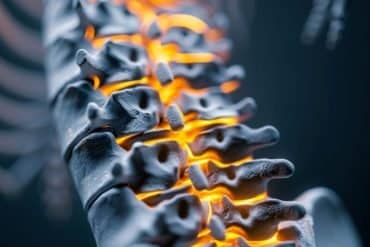Summary: Older adults with more severe hearing loss are more likely to suffer from dementia, but the likelihood of developing dementia was lower for those who use hearing aids.
Source: Johns Hopkins University
A new study led by researchers at the Johns Hopkins Bloomberg School of Public Health found that older adults with greater severity of hearing loss were more likely to have dementia, but the likelihood of dementia was lower among hearing aid users compared to non-users.
The findings, from a nationally representative sample of more than 2,400 older adults, are consistent with prior studies showing that hearing loss might be a contributing factor to dementia risk over time, and that treating hearing loss may lower dementia risk.
The findings are highlighted in a research letter published online January 10 in the Journal of the American Medical Association.
“This study refines what we’ve observed about the link between hearing loss and dementia, and builds support for public health action to improve hearing care access,” says lead author Alison Huang, PhD, MPH, a senior research associate in the Bloomberg School’s Department of Epidemiology and at the Cochlear Center for Hearing and Public Health, also at the Bloomberg School.
Hearing loss is a critical public health issue affecting two-thirds of Americans over 70. The growing understanding that hearing loss might be linked to the risk of dementia, which impacts millions, and other adverse outcomes has called attention to implementing possible strategies to treat hearing loss.
For the new study, Huang and colleagues analyzed a nationally representative dataset from the National Health and Aging Trends Study (NHATS). Funded by the National Institute on Aging, the NHATS has been ongoing since 2011, and uses a nationwide sample of Medicare beneficiaries over age 65, with a focus on the 90-and-over group as well as Black individuals.
The analysis covered 2,413 individuals, about half of whom were over 80 and showed a clear association between severity of hearing loss and dementia. Prevalence of dementia among the participants with moderate/severe hearing loss was 61 percent higher than prevalence among participants who had normal hearing. Hearing aid use was associated with a 32 percent lower prevalence of dementia in the 853 participants who had moderate/severe hearing loss.

The authors note that many past studies were limited in that they relied on in-clinic data collection, leaving out vulnerable populations that did not have the means or capacity to get to a clinic. For their study, the researchers collected data from participants through in-home testing and interviews.
How hearing loss is linked to dementia isn’t yet clear, and studies point to several possible mechanisms. Huang’s research adds to a body of work by the Cochlear Center for Hearing and Public Health examining the relationship between hearing loss and dementia.
The study authors expect to have a fuller picture of the effect of hearing loss treatment on cognition and dementia from their Aging and Cognitive Health Evaluation in Elders (ACHIEVE) Study. Results from the three-year randomized trial are expected this year.
“Hearing loss and dementia prevalence in older adults in the United States” was co-authored by Alison Huang, Kening Jiang, Frank Lin, Jennifer Deal, and Nicholas Reed.
Funding: Support for the research was provided by the National Institute on Aging (K23AG065443, K01AG054693).
Reported Co-Author Disclosures: Nicholas Reed, AuD, serves on the scientific advisory board of Neosensory. Frank Lin, MD, PhD, is a consultant to Frequency Therapeutics and Apple and director of a research center funded in part by a philanthropic gift from Cochlear Ltd to the Johns Hopkins Bloomberg School of Public Health. Lin is also a board member of the nonprofit Access HEARS.
About this hearing loss and dementia research news
Author: Barbara Benham
Source: Johns Hopkins University
Contact: Barbara Benham – Johns Hopkins University
Image: The image is in the public domain
Original Research: Closed access.
“Hearing loss and dementia prevalence in older adults in the United States” by Alison Huang et al. JAMA
Abstract
Hearing loss and dementia prevalence in older adults in the United States
Hearing loss accounts for 8% of global dementia cases, rendering it the largest modifiable risk factor for dementia at a population level. However, there are few nationally representative estimates of the association between hearing loss and dementia among older adults in the US.
Previous estimates were vulnerable to selection bias and typically used self-reported data, which may underestimate hearing and dementia and not reflect the true association on a national scale. In addition, hearing aid use may potentially lower dementia risk among older adults with hearing loss, but evidence is limited and mixed.
We estimated the cross-sectional association of audiometric hearing loss and hearing aid use with dementia among community-dwelling older adults using a nationally representative data set of US Medicare beneficiaries.







